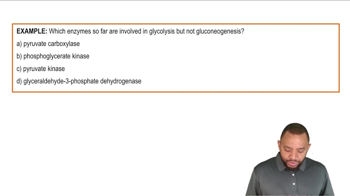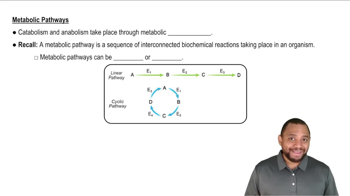Textbook Question
Name the molecules used for gluconeogenesis. What are the sources of these molecules? Under what conditions would gluconeogenesis occur?
 Verified step by step guidance
Verified step by step guidance Verified video answer for a similar problem:
Verified video answer for a similar problem:



 1:45m
1:45mMaster Intro to Gluconeogenesis Concept 1 with a bite sized video explanation from Jules
Start learning